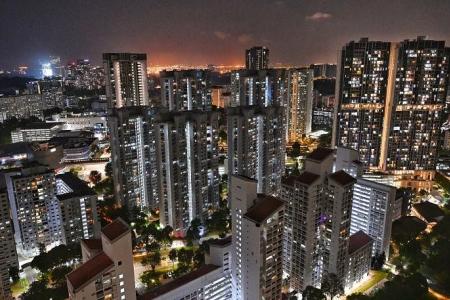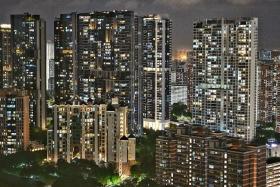Gas, electricity prices to rise next quarter with higher GST, carbon tax and energy costs
Gas and electricity prices will go up for the next three months as a result of higher carbon tax, a scheduled increase in the goods and services tax (GST) and rising energy costs.
From Jan 1 to March 31, 2024, households supplied by SP Group will see a 5 per cent increase in electricity tariffs to 32.58 cents per kilowatt-hours (kWh) after GST, up from 31 cents currently.
After GST, town gas tariffs will also increase by about 4 per cent, to 25.23 cents per kWh, up from 24.21 cents per kWh currently, according to City Energy, the producer and retailer of piped gas.
Consumers who have standard fixed price plans with electricity retailers will not see any change in their electricity tariffs until they renew their contracts, said the Energy Market Authority (EMA) on Dec 29.
From 2024, the GST will increase to 9 per cent, up from 8 per cent currently, while the carbon tax will be raised to $25 per tonne of emissions, up from $5 per tonne of emissions currently.
“The carbon tax is part of a suite of measures to support Singapore’s transition to a low-carbon economy, by steering consumers and producers away from carbon-intensive goods and services, holding businesses accountable for their emissions, and enhancing the business case for the development of low-carbon solutions,” said its spokesman.
Power generation companies levied the carbon tax are expected to pass on some of the cost to electricity retailers like SP Group, which could then pass on these additional costs to its customers.
The National Climate Change Secretariat had in December forecast that the carbon tax hike would bring about a $4 increase in monthly household utility bills for a four-room Housing Board flat, assuming that the full cost of the tax is passed on to consumers.
The Straits Times has asked the EMA if SP Group will be imposing the full cost of the carbon tax on consumers.
At the same time, the average gas price used to calculate the electricity tariff for Jan 1 to March 31, 2024, has also increased vis-a-vis the previous quarter, said the EMA.
It noted that around 95 per cent of Singapore’s electricity comes from imported natural gas, which means Singapore cannot be fully insulated from developments in the global energy market.
“As we continue in our energy transition, natural gas, which is the cleanest form of fossil fuels, is expected to remain as the dominant fuel for Singapore in the medium term,” said EMA.
Natural gas will remain the country’s main source of energy for the next decade, accounting for more than 50 per cent of Singapore’s energy mix by 2035, even as the Republic turns to cleaner technology to decarbonise the energy sector.
Households will receive help for rising bills.
From January 2024 to December 2025, eligible Singaporean HDB households will receive an additional $20 per quarter in U-Save rebates – $80 a year in total – to cushion the impact of the increases in carbon tax and water prices in 2024 and 2025.
Water will soon cost consumers an additional 50 cents per cubic m, starting with a 20-cent increase in April 2024 and a 30-cent rise in April 2025.
U-Save rebates are part of the GST Voucher scheme, which provides lower- and middle-income HDB households with quarterly rebates of $220 to $380 to offset their utility bills.
On average, the additional U-Save rebates should fully offset the increase in utility bills for one- and two-room flats over the next two years, by about 80 per cent for three- and four-room flats, and by about 65 per cent for larger flats.
Get The New Paper on your phone with the free TNP app. Download from the Apple App Store or Google Play Store now


